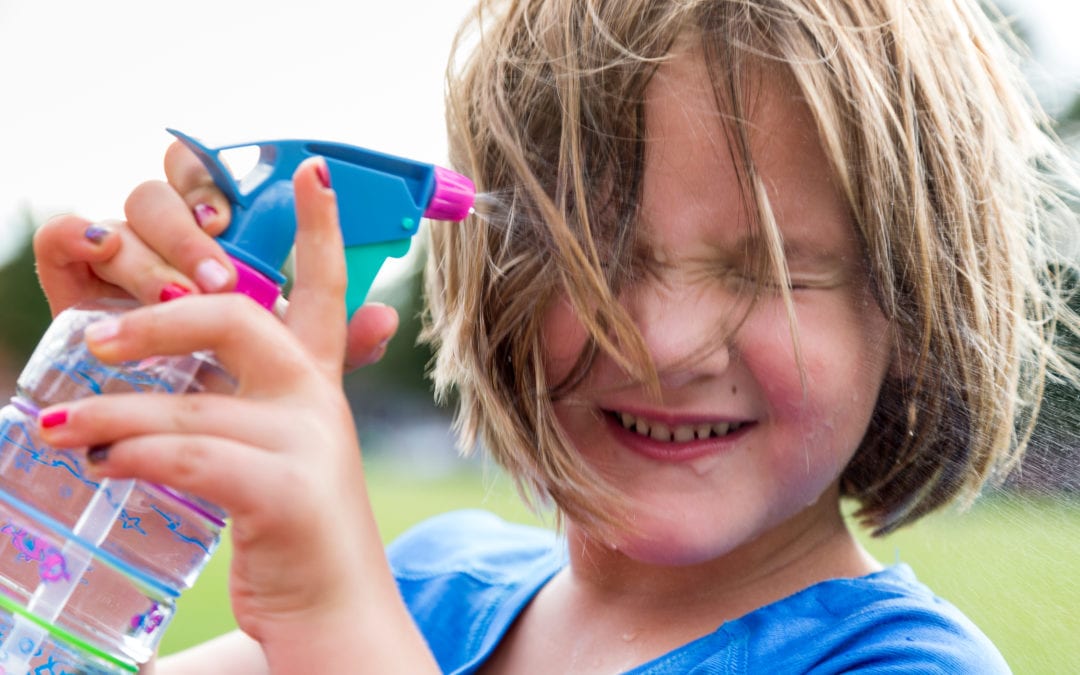Warm summer temperatures in South Louisiana combined with high humidity can quickly cause people to overheat. We begin seeing more patients experience heat illness during the late spring and summer months as they spend more time outdoors. Without proper care and hydration, heat illness can cause severe symptoms. Fortunately, heat-related illnesses are preventable. With the proper care and precaution, you and your family can enjoy the outdoors all summer long.
What is a Heat-Related Illness?
Hyperthermia is the medical term used when the body isn’t able to effectively cool itself down. This often happens in hot, humid areas where sweat isn’t able to evaporate off of the skin. Being over the age of 65, taking some medications or having certain medical conditions may put some people at an increased risk of developing hyperthermia.
Several heat-related conditions may occur as the body begins to overheat. These conditions include:
- Heat rash
- Sunburn
- Heat cramps
- Heat exhaustion
- Heat stroke
Heat Stroke versus Heat Exhaustion
We’re often asked what the difference is between heat stroke and heat exhaustion. Heat cramps are one of the first signs of a heat-related illness. As your body continues to overheat, you may have pale, cold and/or clammy skin and may feel faint, tired or nauseated—these are signs of heat exhaustion.
If care isn’t taken immediately, the heat-related illness might evolve into heat stroke or sunstroke. This is a much more serious condition. At this stage, the body has reached a temperature of 103 degrees Fahrenheit or higher and is no longer able to cool itself with sweat. Immediate medical attention is necessary with heat stroke to prevent you or a loved one from more serious injury.
Common Symptoms of Heat Illness
As temperatures rise, we recommend that all of our patients learn the signs and symptoms of heat-related illnesses. Doing so may help you save a life. The most common symptoms of heat illness include:
- Weakness or tiredness
- Heavy sweating
- Muscle cramps
- Headache
- Nausea
- Rapid pulse
- Dizziness
- Confusion
- Hot/red or cold/clammy skin
- Fainting
- Seizures
When to Seek Emergency Medical Help
During the early stages of heat illness, sipping cool water and moving into a cool, dry location can help the body cool down. It’s important to also remove any excess layers of clothing that can stop sweat evaporation from occurring.
Those with heart problems, who are on a low-sodium diet, who are vomiting for more than one hour or who have hot, red skin with a temperature of 103 degrees or more should call 911 immediately.
How Staying Hydrated May Prevent Heat-Related Illnesses
It’s extremely important to stay hydrated during the warm, summer months—especially if you plan on spending time outdoors and in direct sunlight. Sweat is the body’s natural way of cooling itself; if your body isn’t able to produce sweat due to dehydration, it won’t be able to regulate your temperature and can cause you to overheat.
While outdoors or exercising, drink 16 to 20 ounces of water every hour. Those who are exercising heavily in areas of high humidity, such as in a gym or sauna, may need additional water. Your urine should be pale yellow in color; dark-colored urine is a sign of dehydration.
In addition to drinking water, we also encourage our patients to wear light, loose-fitting clothing, use sunscreen and allow their bodies to slowly become acclimated to outdoor temperatures during the summer months. Avoid drinking alcohol and caffeinated drinks as these can further dehydrate your body.
Talk to a Doctor
If you are concerned about heat-related illnesses, schedule an appointment with your primary care physician at South Louisiana Medical Associates. We can go over your medications and medical conditions to determine if you are at a greater risk of overheating when outdoors. We want all of our patients to relax and enjoy themselves during the summer months, so talk with a doctor about any concerns you may have before heading outdoors or on vacation.

